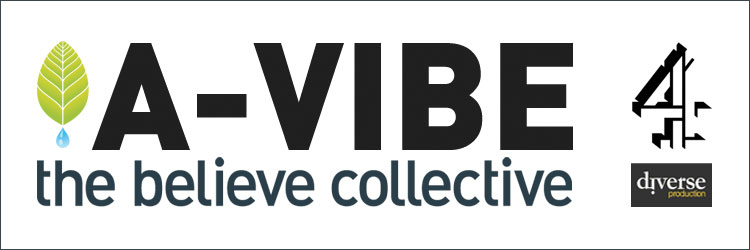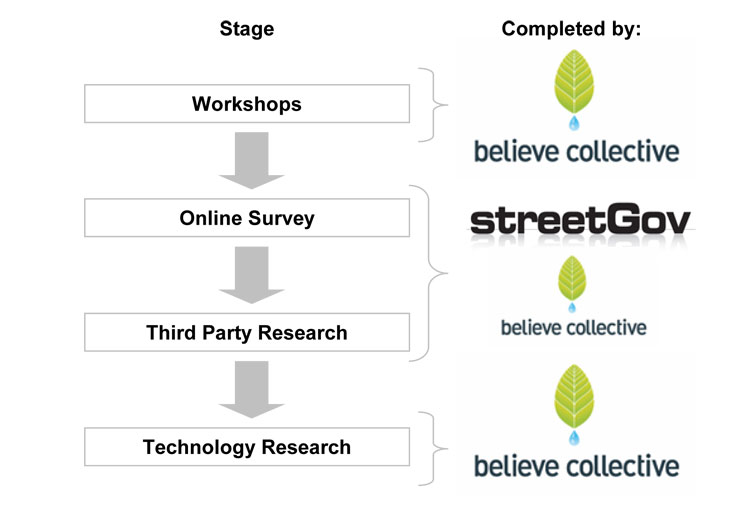
In 2008 I joined digital creative start-up Believe Collective (now Believe Creative) to pitch a number of cross platform projects. Following the submission of two complementary project proposals under the umbrella name A-VIBE (Anti-Violence Initiative for Building Empowerment) that would engage with issues of knife & gun crime and youth gang culture, Channel 4 commissioned a Research and Development Project to investigate the following themes:
- the relationships that our target audience/s of disenfranchised teenagers have with media and technology
- the potential for and possible shapes of a participatory media project or projects focused on violent street crime and gang culture in the UK
- what scope there is for making a positive, long-term difference for this audience through such a project/projects
Channel 4 framed the brief for this initial R&D work as a set of 8 questions that the project should seek to answer in order to establish the potential for cross platform programming targeted at a youth audience with the ambition to address the key issues.
Question 1: What role does media and technology play in the lives of disenfranchised teens?
Question 2: Are there cultural/regional differences that influence their use of media and technology?
Question 3: How do they use media and technology to reinforce their identity within their social groups, and for creative expression?
Question 4: Do they look to these devices/networks to seek validation or approval from their peers or other authorities? If so, how?
Question 5: Is there an opportunity to develop a participative media project that could make a difference to these existing behaviours?
Question 6: What would be more effective – a series of local, tactical projects, or a national [anti-violence] project?
Question 7: What kinds of brands or talent actually make an impact with this audience?
Question 8: What would a successful project look like? With all of the complex and interwoven factors that lead to teen disenfranchisement, can we actually make a difference? What will be the legacy issues?

The outputs of this project, that we called the Q&A-VIBE, should be such that elements can be used to supplement the market research that Channel 4 has already commissioned. Channel 4 stated that it was “not expecting a piece of academic research”, neither would the output of the project be a piece of conventional market research – rather, it will be an extended period of user consultation, research and strategy development.
A bespoke creative methodology for authenticity and integrity
Authentic engagement and response is usually a challenge for most conventional agencies. We combined our experience in youth engagement and creative participation with familiar with conventional research rigour and media audience research techniques to implement an innovative approach and deliver authentic results.

Workshops
Working with local youth workers in key areas of Hackney and Westbourne Park we brought groups of young people together at events in which interactive theatre techniques were used to stimulate dialogue. The filmmaker/actor/Hip-Hop MC team of Teddy Nygh and Adjekum devised a series of scenarios for Forum Theatre performances in which the large focus groups of young people could determine the direction and outcome of the stories proiding valuable insight. Both the interactive performances and the post-performance discussion were recorded and analysed.
Peer-to-peer online survey
With questions informed by outcomes of the workshops, we worked with Street Gov’s online community of young music fans and researchers to conduct a peer-to-peer online survey. The campaign was championed by renowned UK Hip-Hop artist Sway and the survey incentivised with music related prizes.
Desk based research
In addition to the primary research above, a number of secondary resources were reviewed to back up the findings from the primary research or to give it context. The main resources referred to were from:
- The Home Office
- The National Youth Agency
- Ofcom
- The UK Statistics Authority
Documentation
A blog based website was used to dynamically collate outputs throughout the project sharing progress and intermediate findings with Channel 4, the team and partners as the project progressed. This allowed for the final written report to be supported by blog posts and video documentation of the workshops.
Outcomes
The findings were used to inform a cross platform season of programming that ran throughout the summer of 2010 on Channel 4 including TV documentary, drama and music programming alongside games and information content alongside referral to local service provision online.
The research was also used to inform a range of participatory media projects delivered by Hi8us among others.









